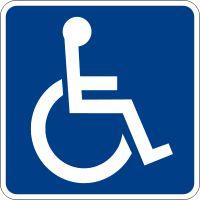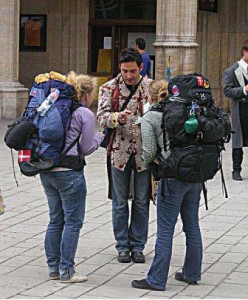
For disabled travellers and for those accompanying them, taking a trip abroad can bring a new set of challenges. Our disabled travellers tips gives some useful tips and advice on helping to ensure your trip goes well and helps to avoid potential pitfalls. Whilst you may well have your own tried and tested tips & checklists to ensure your trips so smoothly, we hope you find our tips and suggestions useful.
Disabled Travel - Tips and Advice
Prior to Starting Your Trip
Transport & Accommodation
Travel Insurance
Health Considerations
Whilst You Are On Your Trip
Prior to Starting Your Trip
Good planning of your trip can help avoid problems further on, it is important to do your research on the disabled facilities you are likely to encounter in the country/countries you will be visiting. Disabled facilities vary greatly from country to country and it is best to be prepared for what you are likely to see.
May wish to use the services and expertise of specialist tour operators with knowledge of holidays and trips for the disabled and use advice from UK disabled organisations.
To help avoid misunderstandings it is best to be clear with tour operators and other service providers such as hotels, taxis etc as to the exact requirements you have.
Contact the airline you will be using to ensure they offer suitable disabled facilities, i.e. do they provide wheelchairs?
Contact Hotels to ensure the disabled facilities are actually in place before you travel. Sometimes disabled access and facilities can be advertised but be very limited.
Transport & Accommodation
The transport requirements need careful consideration for the entire duration of your trip. It is advisable to check with the airline for ensure there is a wheelchair available and what the procedure is for travelling around the terminal, checking in and disembarking is.
It is good to arrive early in good time, check in early and double check all of the arrangements for transport, sitting on the plane and any other details you may wish to check.
If you require the assistance of a guide dog during your travels then please see the Guide Dogs UK website for more information with travelling with guide dogs. There may be quarantine regulations and veterinary certificates and identification documents could be required, it is best to check in good time to familiarised yourself with the procedure.
Check with your Hotel for the exact requirements you have and the precise nature of the facilities they offer to avoid misunderstandings and disappointment. When looking for accommodation that offers disabled travellers the facilities they require, see Access-able for more information on hotels and hotels in a range of locations worldwide.
For hotel and transport facilities it is worth asking friends, family and colleagues for their recommendations of where good disabled facilities are available.
Travel Insurance
Ensure you have up to date full medical insurance before you travel and ensure it is valid for the full duration of your trip. Ensure your insurer is aware of any pre-existing conditions you may have, failure to disclose this can result in claims being turn down and the prospect of having to pay for treatment yourself.
If you have pre-existing conditions or health conditions that make it difficult to get travel insurance, try specialist insurers to ensure you are fully covered for your trip.
Health Considerations
Check to see if your airline requires any form of medical clearance before travelling. Some airlines could require proof you are fit enough to travel.
Ensure you have all of your medication and have enough of it to last through your entire trip and some extra, in case there are any delays in returning.
Check with your doctor if you are required to complete a Medical Information Form (MEDIF).
Ensure your medication is clearly labelled and keep your medication in your hand luggage where it is easy to access, do not put in your main luggage where it could get lost if anything happens to your luggage.
It is vital to carry a letter from your doctor explaining the need for your medications, this would be needed in case anything happens to your medication or you need to get some more.
Some medication may contain ingredients legal in the UK that are illegal elsewhere, it is best to check with the embassy/high commission of the countries you will be visiting before you travel.
Whilst You Are On Your Trip
If you are going to be driving on your trip, ensure there are the required adapted cars available.
The Blue Badge Parking Scheme offers those with mobility problems with discounted parking concessions throughout the UK and the EU and there some other countries outside the EU where some discounts are offered. If you are going to be driving or could do, take the badge with you.
If you need help ask for it, many people will be happy to help if asked. Sometimes people may be too shy to offer help or fear they may offend or be seen as condescending.
Remember to observe all the usual common sense precautions when travelling, if you are travelling alone provide a family member or friend with your itinerary and contact telephone number. Do not show valuables in public i.e. jewellery and money. Be vigilant and aware of your surroundings at all times.
The disabled travellers tips above offer a useful guideline on remembering various tips and advice to assist you on your trip and hopefully ensure you have a pleasant incident free trip. Being well researched, prepared and informed can help ensure an incident free trip and ensure you are well prepared should the unexpected happen.
Disclaimer: The information given in on this website is given in good faith and to the best of our knowledge. If there are any discrepancies in no way do we intend to mislead. Important travel details and arrangements should be confirmed and verified with the relevant authorities.




